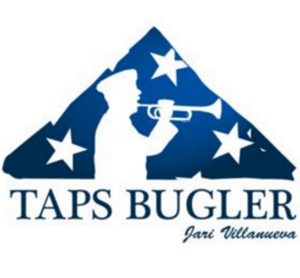BUGLE CALLS ON CYLINDERS

Rough Riders Bugler Emil Cassi
Rough Riders Bugler 3438 Y E. Berliner’s Gramophone. Emil Cassi, bugler.
Re-enactment of bugle calls sounded at San Juan Hill, Santiago, Cuba, July 1, 1898: First call; reveille; assembly; forward, guide right; halt; skirmish; rally. Taps as sounded at the graves of Sergeant Hamilton Fish, Jr., and Captain Capron, June 24, 1898 at Las Guasismas. Taps sounded at the grave of Captain Bucky O’Neil, July 1, 1898.

Bugle Calls from the Sousa Band
Sousa’s Cornet and Trumpet Section. Recorded 1902, Philadelphia, Pennsylvania. Cornets: Walter Pryor, Emil Keneke, Bert Brown, and Jacob C. Fuchs.

US Marine Band Fifes and Drums
Interesting recording of the US Marine Band Fifes and Drums playing The Stars and Stripes Forever recorded in 1901. This is actually drums, piccolos and what sounds like clarinets from the band.

Recollections of 1861-1865
Recollections of 1861-1865 performed by Edna White in 1921 #4239: Edison Blue Amberol Cornet solo, orchestra accompaniment. Medley includes “Adjutant’s Call,” “Just Before the Battle, Mother,” “Mess Call,” “When Johnny Comes Marching Home,” “Assembly Call,” “We’re Tenting To-Night,” and “Taps.”
Oh, How I Hate To Get Up In The Morning, that famous bugle song by Irving Berlin (1918)
Written in 1918, this song gives a comic perspective on military life. Berlin composed the song as an expression of protest against the indignities of Army routine shortly after being drafted into the United States Army in 1918. The song soon made the rounds of camp and became popular with other soldiers, partly because hatred of Reveille was universal.
The other day I chanced to meet a soldier friend of mine,
he’d been in camp for sev’ral weeks and he was looking fine;
His muscles had developed and his cheeks were rosy red,
I asked him how he liked the life, and this is what he said
Oh! how I hate to get up in the morning,
Oh! how Id love to remain in bed;
For the hardest blow of all, is to hear the bugler call;
You’ve got to get up, you’ve got to get up, you’ve got to get up this morning!
Some day I’m going to murder the bugler,
Some day they’re going to find him dead;
Ill amputate his reveille, and step upon it heavily,
And spend the rest of my life in bed
Oh! how I hate to get up in the morning,
Oh! how Id love to remain in bed;
For the hardest blow of all, is to hear the bugler call;
You’ve got to get up, you’ve got to get up, you’ve got to get up this morning!
Some day I’m going to murder the bugler,
Some day they’re going to find him dead;
Ill amputate his reveille, and step upon it heavily,
And spend the rest of my life in bed.
A bugler in the army is the luckiest of men,
He wakes the boys at five and then goes back to bed again;
He doesn’t have to blow again until the afternoon,
If ev’ry thing goes well with me I’ll be a bugler soon.
Oh! how I hate to get up in the morning,
Oh! how Id love to remain in bed;
For the hardest blow of all, is to hear the bugler call;
You’ve got to get up, you’ve got to get up, you’ve got to get up this morning!
Oh! boy the minute the battle is over,
Oh! boy the minute the foe is dead;
I’ll put my uniform away, and move to Philadelphia,
And spend the rest of my life in bed.
















